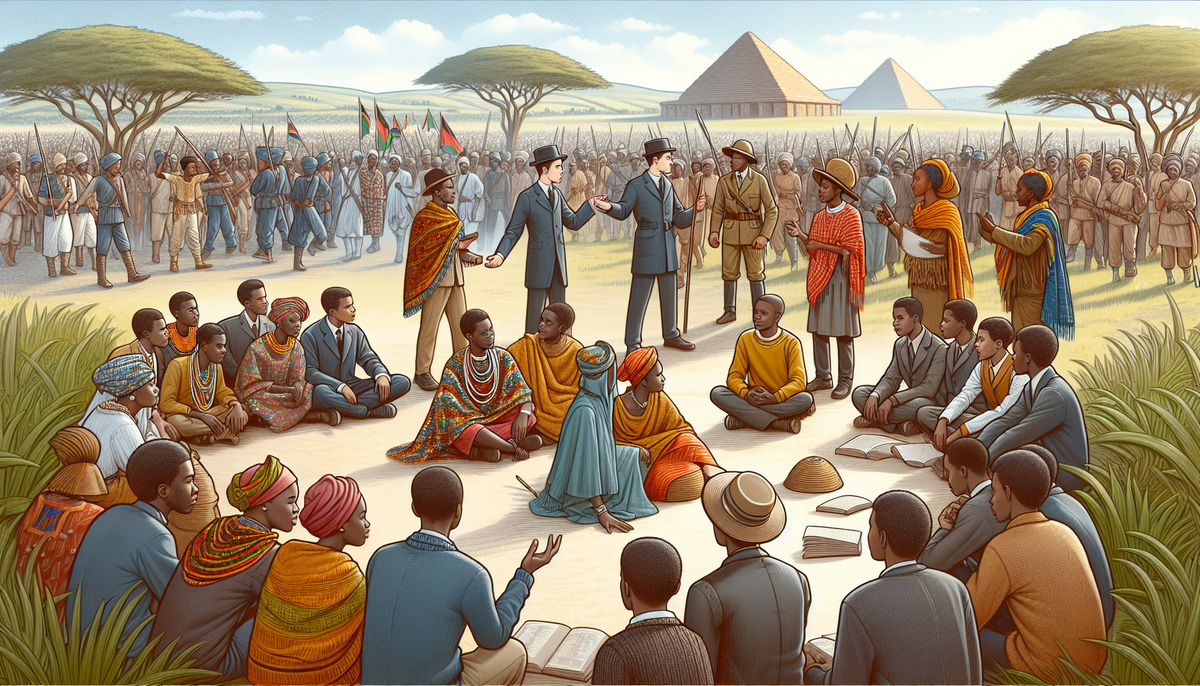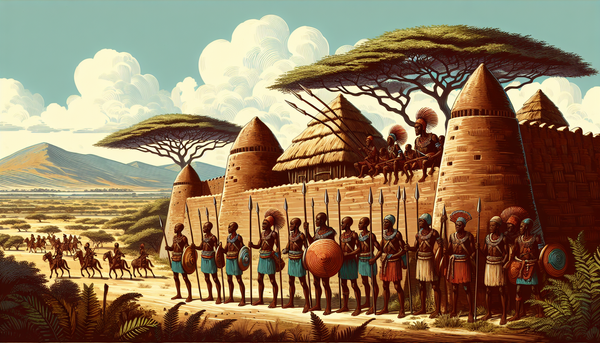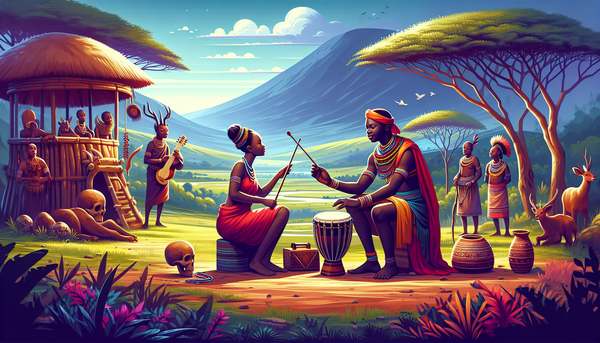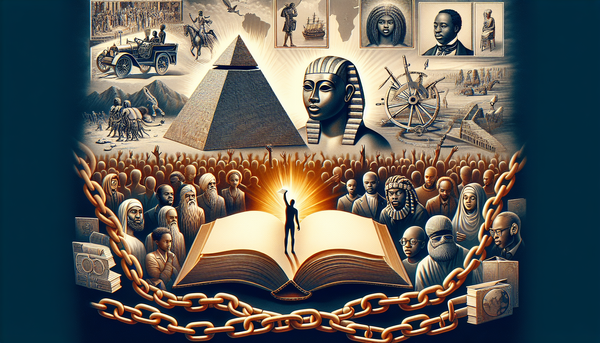Youth Activism in Africa: Historical Perspectives

The Roots of Youth Movements Across the Continent
Youth activism in Africa has deep historical roots that can be traced back to the struggles against colonial rule. From the early 20th century, young individuals became pivotal in the quest for independence, driven by a desire for self-determination and justice. The formation of student organizations, such as the West African Students’ Union in the 1920s, showcased the potential of youth to challenge societal norms and advocate for change.
Throughout the mid-20th century, the emergence of charismatic leaders like Julius Nyerere and Nelson Mandela inspired young people to envision a liberated future. Universities became hotbeds of political thought, fostering a spirit of rebellion against oppressive regimes. The youth played a crucial role in major historical movements, including the anti-apartheid struggle in South Africa and the fight for independence across various countries.
As the continent underwent significant transformation post-independence, youth activism continued to thrive, addressing pressing issues like poverty, unemployment, and corrupt governance. The growing awareness of global issues, combined with the unique experiences of African youth, has led to an increasingly organized and vocal generation that is determined to influence policy and advocate for their rights in the modern era.
Impact of Colonial Resistance on Modern Activism
The resistance against colonialism in Africa has had a profound and lasting impact on contemporary youth activism. The struggles of the past laid the groundwork for young generations to understand the importance of collective action and civic engagement. Influential movements, such as the Mau Mau Uprising in Kenya and the Pan-African Congress, galvanized youth and instilled a sense of pride and purpose that transcended national borders.
The narratives of courage from figures like Patrice Lumumba and Kwame Nkrumah continue to resonate with today’s youth, inspiring them to challenge injustices and demand accountability from their leaders. Colonial resistance fostered a culture of activism that values voice and action, enabling youth to mobilize against current issues like corruption, inequality, and human rights abuses.
Furthermore, the legacies of past movements emphasize the significance of solidarity and connection among African nations, promoting a pan-African identity that fuels modern activism. Young activists today are increasingly leveraging social media and digital platforms to amplify their missions, echoing the interconnectedness first established during the anti-colonial struggles. Thus, the influence of historical resistance remains a driving force in shaping contemporary agendas, encouraging a new wave of informed, passionate youth dedicated to achieving social transformation.
Influence of Digital Channels in Mobilizing Young Activists
In the digital age, young activists across Africa have harnessed the power of technology and social media to amplify their voices and foster collective action. Platforms such as Twitter, Facebook, and Instagram provide essential avenues for communication, enabling youth to share information, raise awareness, and mobilize quickly around pressing issues like climate change, gender equality, and political corruption.
The viral nature of digital content allows for rapid dissemination of messages and ideas, turning local protests into global movements. Campaigns like #EndSARS in Nigeria exemplify how young people can galvanize support across borders, drawing international attention to specific injustices. These platforms not only facilitate grassroots organizing but also connect African youth to global networks of activists, creating a shared sense of purpose and solidarity.
Moreover, digital channels offer an innovative way to engage and educate fellow youth about their rights, encouraging informed activism. Online webinars, discussions, and workshops provide accessible platforms for learning and collaboration. While the digital landscape presents challenges, such as misinformation and government censorship, the adaptive nature of young activists ensures that they continue to find ways to utilize these tools effectively. Ultimately, the influence of digital channels has transformed youth activism in Africa, making it more dynamic, inclusive, and impactful.
Case Studies of Successful Youth-Led Campaigns
Several notable youth-led campaigns across Africa have demonstrated the power of young advocates in effecting change. One prominent example is the #FeesMustFall movement in South Africa, which emerged in 2015. Sparked by an increase in university fees, students mobilized nationwide, demanding affordable education and institutional reform. Their organized protests led to significant concessions from the government, including a freeze on fee increases for 2016 and a discussion on broader educational policies.
Another impactful campaign is the "March for Our Lives" initiative in Kenya, aimed at demanding action against gender-based violence. In 2020, young activists took to the streets, holding demonstrations and using social media to draw attention to the alarming rates of violence against women. Through persistent advocacy, they successfully pressured the government to reconsider policies and implement stricter laws to protect women’s rights.
Additionally, the Youth Climate Strike movement, inspired by global youth activism, has seen African youth actively participating in climate action. Initiatives led by young climate activists in countries like Uganda and Nigeria have highlighted environmental issues and called for sustainable practices, engaging communities and policymakers alike.
These campaigns exemplify the creativity and determination of African youth, showcasing their ability to drive meaningful change through advocacy and mobilization.
Challenges Faced by Young Activists in Political Landscapes
While young activists in Africa are increasingly influential, they face numerous challenges in navigating complex political landscapes. One significant hurdle is government repression, which often manifests in the form of intimidation, censorship, and violence. Many governments view youth movements as threats, leading to crackdowns on protests and the harassment of organizers. This hostile environment can stifle activism and discourage participation.
Additionally, the lack of access to resources hampers the effectiveness of youth-led campaigns. Many activists struggle to secure funding, tools, and training necessary for organizing and outreach. This gap often leaves grassroots movements relying on limited means, which can impede their ability to reach wider audiences and achieve their goals.
Another challenge is the generational divide within society. Older political leaders may dismiss the concerns and perspectives of young activists, perceiving them as inexperienced or naïve. This disconnect can lead to frustration and alienation among youth, making it difficult to engage in constructive dialogue.
Moreover, misinformation and political propaganda can complicate activism efforts. Young activists must combat false narratives that attempt to undermine their credibility or distort their messages. Despite these challenges, many young people persist, driven by a passion for change and a desire to create a better future for their communities.
Education's Role in Empowering New Generations
Education plays a fundamental role in empowering new generations of young activists in Africa, serving as a critical tool for awareness, critical thinking, and social mobilization. Through formal education systems and informal learning environments, young people gain the knowledge necessary to understand their rights, historical contexts, and current societal challenges. This awareness fosters a sense of responsibility and encourages them to advocate for their communities.
Moreover, educational institutions often serve as incubators for activism. Universities and colleges provide platforms for dialogue and debate, where students can engage in discussions about justice, inequality, and governance. Student organizations and clubs facilitate grassroots movements, allowing young activists to organize campaigns, protests, and awareness programs that address local issues.
In addition, education can enhance leadership skills and civic engagement, equipping youth with the tools to navigate political landscapes effectively. Programs that focus on democratic participation, conflict resolution, and advocacy strengthen the capacity of young people to lead initiatives that challenge injustices.
Investment in education, therefore, is essential for nurturing informed and engaged citizens who can drive change. As young Africans become more educated, they are better positioned to confront the challenges facing their societies and contribute to a more equitable future.
Futures of Activism: Trends and Predictions
The future of activism in Africa is poised for significant evolution, driven by emerging trends and the increasing involvement of technology-savvy youth. One prominent trend is the embrace of digital organizing and online platforms. As young activists continue to leverage social media for outreach and mobilization, we can expect more collaborative efforts that transcend geographic boundaries, creating global networks aimed at addressing pressing issues such as climate change, human rights, and social justice.
Additionally, there is a growing emphasis on intersectionality within activism. Future movements are likely to adopt more inclusive approaches, recognizing and addressing the unique challenges faced by marginalized groups, including women, LGBTQ+ individuals, and people with disabilities. This shift towards intersectional advocacy will lead to more holistic strategies that promote equitable solutions.
Moreover, the rise of environmental activism among youth indicates a shift in priorities, as concerns about climate change take center stage. Young activists are increasingly incorporating sustainability into their agendas, driving demands for policies that promote environmental protection and social justice.
As these trends unfold, we can anticipate a more dynamic and interconnected landscape of activism in Africa, characterized by collaboration, inclusivity, and a stronger focus on pressing global challenges. Such developments promise to empower new generations to lead impactful movements for change.



